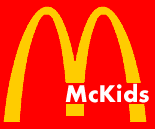







|

|
GUIDE TO BECOMING VEGANKnow your onionsQUICK 5-DAY MEAL PLAN It might be helpful if you plan your meals. This plan shows youjust how easy it is! This section is for those of you who wish to know more about nutrition. ENERGYYou must make sure you eat enough each day to get plenty of energy. Don't skip meals, don't go hungry and don't fill up with lots of fizzy, sugary drinks and sweets! You can get energy from all foods but those high in carbohydrates (bread, pasta, potatoes, dried fruit, fruit juice) and fat (vegetable oils, margarine, nuts and seeds) are especially good. Fat should not contribute more than 35% of the total energy intake of adults and older children. Estimated average requirements for energy in calories (kcal) / dayThe calorie content of processed foods are listed on the packaging. Foods high in sugar and fat are high in calories. PROTEINIt is very easy to obtain enough protein during the teenage years. In fact unless you are not eating enough calories each day, in other words starving yourself, then you are unlikely to be lacking in protein. And you don't require huge amounts of protein either! Protein requirement/dayExamples of the amount of food providing 10g of protein Eat all the above in one day and you will have eaten 55g of protein. Easy! Even better, you will also be getting energy, vitamins and minerals which are also contained in these foods VITAMINSVitamin AVitamin A or retinol is found naturally only in animal foods. But the carotenes (beta carotene or pro-vitamin A is the most important) are found in orange and green leafy vegetables. Not only is beta-carotene the only natural source of vitamin A for vegans, it is also one of the prime sources for omnivores! Requirement for vitamin A through to adult (one microgram of retinol is equivalent to 6ug of beta-carotene) Examples of the amount of beta-carotene in different foods per 100g (boiled) (raw) B VitaminsWhile each B vitamin is unique, they have features in common and tend to be found in the same types of foods such as wholegrains and pulses (except B12 - see below. The daily requirements for each B vitamin for all teenagers is as follows. Example of the range of B vitamins in 100g Wholemeal bread Example of the range of B vitamins in 100g of frozen (& boiled) peas B12A lot of worry has been generated over getting enough B12 and dietary deficiency of B12 in vegans is rare. B12 is made by bacteria and was traditionally obtained from fresh garden vegetables and fermented foods. Now, however, due to the intensive processing of fruit and vegetables in the food industry, these foods can no longer be relied upon as adequate B12 sources. Some people may obtain B12 from lightly washed home-grown vegetables. However, foods fortified with B12 are a more reliable source. Try to include B12 in your diet at least 2-3 times per week. Foods containing B12 include fortified soya milk, fortified vegan margarines, yeast extracts and some breakfast cereals e.g. many Kelloggs cereals are suitable for vegans and contain B12. Vitamin CFew foods naturally contain
vitamin D and those which do are animal products (vitamin D3
or cholecalciferol). Dietary sources of vitamin D are
relatively unimportant as most people obtain vitamin D from
the action of ultra-violent B light on sterols in the skin
(in other words sunlight on the skin!). Winter time supply
of vitamin D depends on the previous summer's exposure
creating adequate stores in the liver, or on dietary
sources. The exact requirement of vitamin D is unknown.
Vegan sources of vitamin D (D2 or ergocalciferol) include
some fortified soya milks, vegan margarine. If you don't get
much sunshine, go out with your skin covered up or do not
eat foods fortified with vitamin D, then you should consider
taking a supplement (vitamin tablet).
Vitamin E is found in many
plant foods such as vegetable oils, nuts, seeds and
wholegrains. The Dept of Health has not set a recommended
intake of vitamin E but says that 3-4mg daily is
adequate.
Examples of the amount of
vitamin E in different foods per 100g
Calcium isn't only found in
cow's milk and cheese (despite what the adverts imply!).A
lot of people don't realise which types of foods contain
calcium and are under the impression that milk is the only
useful source. To make things clearer we have compared the
calcium in milk to the calcium contained in vegetables. Be
amazed. Be very amazed!
For extra calcium each day
use a calcium-enriched soya milk in your drinks and for
cooking. If you are still concerned about calcium intake or
osteoporosis in later life we have information sheets on
both topics. Just send us a stamped addressed envelope and
ask for free copies.
Examples of the amount of
calcium in different foods per 100g
If you were to listen to
scare stories you would think every vegan was anaemic. Well,
it just isn't true and there is plenty of iron in a vegan
diet. Iron obtained from meat is better absorbed than iron
obtained from plant sources. However, vitamin C helps the
absorption and vegans eat a lot of this. If you drink a
glass of fruit juice with your meals, you will enhance your
iron intake.
The Dept of Health recommends a daily intake of 11.3-14.8mg for teenagers.
Examples of the amount of iron in different foods per 100g
Still worried about iron?
Well, take a look at the iron content of meat and milk -
100g of grilled lamb cutlets contains 1.9mg of iron. And
cow's milk is a very poor source of iron. In fact 100g of
skimmed milk contains 0.06mg of iron!
The Dept of Health
recommends a daily intake of 9mg of zinc for
teenagers.
Examples of the amount of zinc in different foods per 100g
Nutrition is a complex subject and different nutrients interact with each other to keep your body healthy. Eat lots of different foods throughout the day, making sure you don't rely heavily on one particular food e.g. chips.
email the Vegan Society at info@vegansociety.com
|